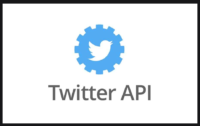Impact Of Social Media Analytics on Businesses
In analytics, social media analytics falls under the broader category of descriptive analytics and diagnostic analytics. If you’re working in a marketing analyst role or supporting a marketing team it’s important to understand social media analytics and how they impact the business.
What Social Media Platforms Track Analytics
Most social media platforms have some amount of analytics built into their applications to enable them track interactions and engagements. There’s youtube analytics, facebook analytics, instagram analytics, linkedIn analytics, twitter analytics, and also tiktok analytics.
Beyond the platforms we traditionally think of as social media, most people consider customer sentiment mining on forums (like reddit) to also fall under social media analytics.
What Types of Data is Available?
There are variations of data available on different platforms. There are also differences between what metrics are available and the terminology being used.
The major metrics that cross all platforms include:
- Followers (or page likes): How many people are requesting to see the posts?
- Impressions : How many people saw the post / content? How many people had the chance to see more?
- Engagement: Of those that saw the content that was posted, how many interacted with it? Depending on the platform, this could be video views, link clicks, likes, etc. Engagement is one of the most important metrics across social media platforms because it shows if people are interacting with your posts.
- Engagement Rate: The number of engagements divided by the number of impressions
- Post Clicks: These aren’t exactly the same metric, but availability differs by platforms
- Shares: How many people shared your post? Retweeted the content? Shares are also a form of engagement.
Beyond these universal metrics, you’ll also find additional useful information on many platforms including how people found the content – whether it was suggested to them, they searched for it, they came from an external source. These types of metrics can be very helpful for building a future strategy for maximizing impact.
Get access the best analytics course on the internet
Which social media metrics should you analyze?
Track metrics that align with the primary goals of your content. Whether the objective is to raise awareness, drive fundraising efforts, or increase product or service sales, it’s important to monitor a variety of metrics. However, your primary focus should be on those that provide actionable insights.
For example, if impressions are high but engagement is low, this signals a need to take action to improve interaction. On the other hand, if impressions are not meeting expectations, your focus should shift toward increasing visibility first.
How can social media analytics drive business improvements?
Tracking different metrics can indicate which things are working well and which aren’t. For instance, if content is getting a very high number of impressions but the engagement is low, then you don’t need to focus on getting in front of more people—you need to engage the people you are reaching.
You’ll also need to be aware of what your goal is with any given piece of content.
Sometimes you’re just sharing informational details like the business is closed for a holiday in which case you don’t need a lot of engagement – you just need impressions. Other times, for instance if you’re trying to sell spots in a workshop, you care more about click through rate – and likely will combine that with sales data for additional effectiveness.
Conclusion
In conclusion, social media analytics is a powerful tool for businesses to understand and optimize their digital presence. As social media continues to play a central role in marketing strategies, the ability to analyze and interpret these data points will be essential for businesses aiming to stay competitive in a dynamic digital landscape







